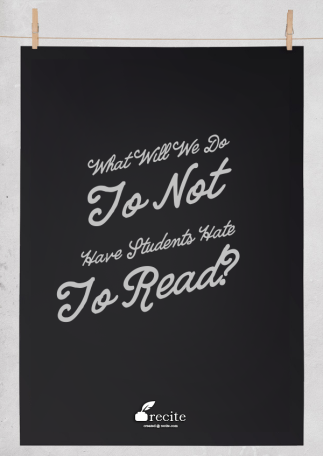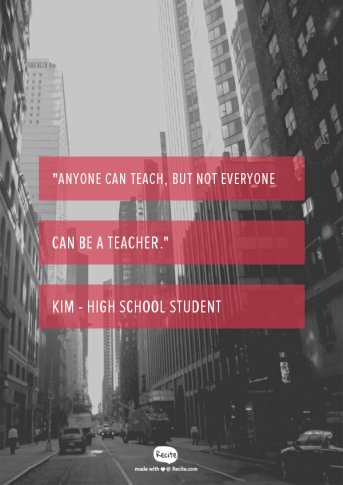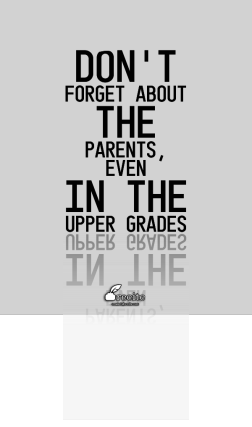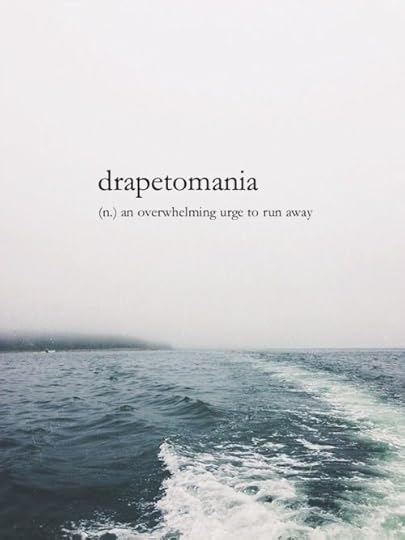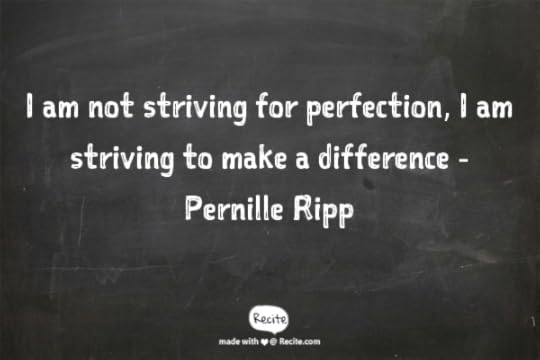Pernille Ripp's Blog, page 72
August 13, 2015
At Any Given Moment We Have the Power to Stop the Hate of Reading
It used to astound me that my 4th graders would come to me and profess a hatred of reading. It used to shock me to the core. After all, these were the same kids that would ask for just one more page of our read aloud. Who would ask me to read a picture book aloud the minute it came to our room. Who had no problem confessing the love for the book we were sharing, but had none for the one they were reading alone. I always thought that the next year’s teacher would surely get them on the right path even if I couldn’t.
Now I am the next year’s teacher, and their dismay of books has only grown further. The group of children telling me that they never read outside of school has only grown. And this is not a boy-reader problem, this is an any gender problem. This is not something just caused by poverty, nor disengaged parents, nor reading difficulties. I see the hatred of reading defended the most from my students who have had every opportunity to fall in love with reading. I know I am not alone in this. And I know I cannot wait for someone else to fix it.
So I started to dig a little deeper. I get that they “hate” reading, but why? What parts was it that caused so much emotion, or sometimes so little, that students would have a physical reaction to whenever we had independent reading time. And their truths were not pretty, because the finger they pointed, pointed right at me. Or us, as educators.
We may think that it is too easy to blame teachers for the systematic destruction of reading love in our schools, and it is, because there are forces beyond our control that have a huge part in this as well. But part of the blame does lie with us, and that means we can do something about it. Especially in the upper grades where reading is no longer treated as something magical, but instead merely something useful.
At any given moment, we have the power to stop ourselves from telling students what to read. In our eagerness to shape well-rounded readers we are instead creating non-readers. In our eagerness to make sure students are exposed to all types of books, we are limiting them from discovering their own reading identity. Would we rather have a child that reads every single fantasy book they can come across, or a child that begrudgingly only reads a few books a year from other genres?
At any given moment, we have the power to make reading fun again. Fun is a not a swear word in our schools. There is nothing wrong with discovering a book that makes us laugh, or makes us wonder, or makes us think. Reading does not always have to have a purpose. It can be just to share a wonderful experience.
At any given moment, we have the power to stop interrupting children while we read. To not point out every single detail. To not have them do post-its for every thought they have. To not have them turn-and-talk every few minutes. Let them reach the reading zone as Nancie Atwell calls it. And not just once in a while but most of the time.
At any given moment, we have the power to reclaim what reading should feel like in our classrooms. To stop always using whole-class novels. To stop furthering our own vision for what makes a reader a reader. To stop hanging our own reading identities around the shoulders of students and wonder why it does not fit?
At any given moment, we have the power to create classrooms where reading is magical. Where reading is celebrated. Where reading is taught, but taught in a way that does not extinguish the love of the very thing we are trying to promote. But we have to look at our own practices first, we have to stand up and change. We have to ask our students what we are doing so that we can be better. So that their love of reading does not have to survive our classrooms. So that their hatred for reading does not have room to grow. But it starts with us, not them.
If you like what you read here, consider reading my book Passionate Learners – How to Engage and Empower Your Students. The 2nd edition and actual book-book (not just e-book!) comes out September 22nd from Routledge.
Filed under: being me, Literacy, Passion, Reading, student voice


The One Great Idea Promise
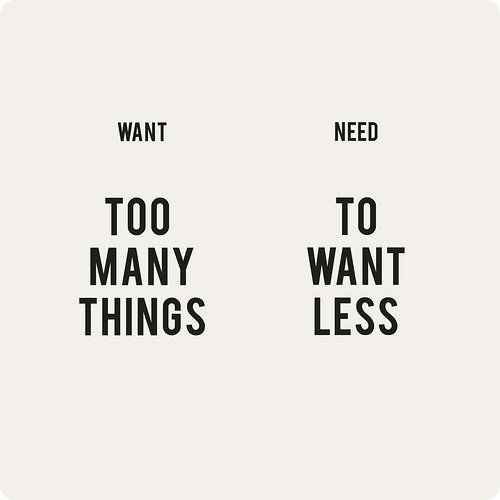 image from icanread
image from icanreadSchool is nearly starting here in Wisconsin. Less than three weeks until we say hello. For some of my friends, it has already started and for others this is not the beginning of a new year. We are surrounded by the buzz of excitement that comes from starting anew. We are surrounded by the energy that will lift us up and carry us forward, led by dreams. We are surrounded by the myriad of ideas we have concocted, come across, and considered as we inch nearer to that first magical day.
But what do you do with an idea? to quote one of my favorite picture books. Because we have all of these ideas that we cannot wait to try. We have all of these ideas that will change the way we teach, change our students’ lives, and hopefully inspire change overall. We have so many ideas that we often overwhelm ourselves before we even begin.
So I give you the one great idea promise; promise yourself that you will hold on to just one idea and pursue it with every thing you’ve got. Find your essence, find your core, and hold on to that with every planning step you take. Write it out, hang it up, and keep it in the forefront whenever you plan. This is where your energy should go. That doesn’t mean to dismiss all of the other ideas you have, but to let them slide in when they fit. Write them down because you will forget them, but circle the one that will set apart this year from last. Find your one great idea and love it with all of your might.
We say we want to change the world, but sometimes we need to just change one thing. So find your thing and do it. Don’t give up because you didn’t do them all. The students don’t need you to do all things, they need you to do just one; love them and your job. The students await.
If you like what you read here, consider reading my book Passionate Learners – How to Engage and Empower Your Students. The 2nd edition and actual book-book (not just e-book!) comes out September 22nd from Routledge.
Filed under: aha moment, being a teacher, being me, ideas, new teacher, new year


August 12, 2015
I Wrote This Post
I wrote this post three different ways, and none of them spoke my words well. I wrote this post three different ways but none of them said what I really wanted to say. I wrote this post three different ways all leading me to the same question; where are the students’ voices in our professional development?
Where are the voices of those we say we need to reach?
Because if they are not speaking to teachers as we prepare for yet another year. If they are not on our committees. If they are not at some of staff meetings. If they are not there speaking to us throughout the year, then who are we really preparing for?
That’s it.
PS: In my district today at our vision conference, we had a student-led panel for an hour and half talking about the good and bad in their education. The whole afternoon was then spent reacting to what the students said. I have learned more today about being a good teacher then I have at many conferences. And that quote at the top came from one of our students today.
PPS: To see all of the surveys I use with students and parents to get to know them better, go here.
If you like what you read here, consider reading my book Passionate Learners – How to Engage and Empower Your Students. The 2nd edition and actual book-book (not just e-book!) comes out September 22nd from Routledge.
Filed under: being me, student choice, student voice, voice


A Few Ideas for Parent Engagement
Parent engagement is a natural component of the elementary experience, after all, with class parties, whole school events, and weekly newsletter, parents have an easy time becoming involved in their child’s education. Not only is parent involvement invited, it is expected and so schools and individual teachers create plenty of opportunities for parents to be involved.
Yet, with the gradual release of responsibility as students age, parent involvement becomes less and less of a focus. We expect them to still be involved but not nearly as present. Not nearly as informed. After all, their children should be growing into responsible teens, which I agree with, however, not all children are ready to be left to their own devices. So rather than an expectation of parent involvement in the upper grades, how about an invitation instead? Here are a few ideas to do just that.
The beginning of year parent survey. Parents know their children best so we need to tap into that goldmine at every age. It doesn’t have to be long, mine this year is 5 questions, but at least it gives parents a chance to communicate with us as we start the year.
The weekly newsletter. This bastion of elementary classrooms does have a place in our older classes, but keep it short and to the point. My team does a bullet point version of things parents can ask their child about and also an update on upcoming deadlines and projects. If parents would like more information, they can access our website.
A beyond-the-homework website. We have a website that yes lists homework, but it also gives team information, school announcements, helpful tips, as well as has a Google calendar where everything we are aware of for school is listed. Parents can subscribe to it and get the news delivered via email.
Morning/Evening events. This year I will be inviting parents along with their children in for literacy mornings or evenings where we will discuss books, view book trailers and such. Perhaps none will show up but I want to create the opportunity either way.
The positive notes or phone calls. It is hard to reach out to 120+ parents so split it up as a team if possible. Keep a master list of who has had positive news about their child shared with them via email, phone call, or post card.
Go beyond the twice a year conference. Every few months I invite parents to set up meetings with me to discuss the progress and goals of their child. Not many take me up on it, however, they have the opportunity to come in if they would like. And yes, that is me spending my time outside of hours to meet with parents but it is completely worth it in the end.
Weekly emails. I send home a weekly email or so to parents discussing all things English, I keep it short and sweet and I post it on our blog too. Parents can choose to delete it if they would like, I would rather have parents feel over-informed than under-informed.
Learn their names. This is a not an event but a process. I have a hard time keeping track of all of the names but I think it speaks volumes to know who it is I am speaking to. When I don’t know I simply ask, I would rather admit it then pretend to know.
Keep learning transparent. I try to post pictures and video from our classroom as much as possible so that parents can see what we are doing. This year I plan on doing more of this as I feel more secure as a 7th grade teacher. Again, they don’t have to view it, but at least it is there.
Open door policy. I know that most parents are too busy to stop by but the point is; they can if they want to. While I cannot stop teaching and speak to them, they can at least get a glimpse of what we are doing and how engaged their child is.
Staying connected and nice. I know that we teach many students, I am up to 120 some I think, yet, for a parent you are only teaching their child. So stay humble, stay nice, stay inviting, and if you mess up; admit it. Having a teacher that truly cares about their child is on the wish list of every parent, even as they age.
What other ideas do you have?
If you like what you read here, consider reading my book Passionate Learners – How to Engage and Empower Your Students. The 2nd edition and actual book-book (not just e-book!) comes out September 22nd from Routledge.
Filed under: being a teacher, new teacher, parents


August 11, 2015
It Is Not Just Student Relationship We Should Worry About
Today our incoming 7th graders found out which teachers they will have. I hope they are happy. I hope they are excited. I hope they have heard wonderful things about our team. I know we can’t wait. Today was also the day that Thea, my now 1st grader, found out her teacher, a moment that was exciting yet filled with questions as well. Will her teacher “get” her? Will she love school? Will this be another incredible school year for her? What will my role be as a parent of a 1st grader?
For years I have tried to create a welcoming environment for all the people that are attached to our classroom. For years I have tried, along with my team, to create spaces where parents/guardians can feel like they have a voice, are welcome, and also can engage in tough dialogue with us when needed. It is something that we pride ourselves on because it has not just happened, we have had to work at it knowing that parent/guardian relationship is vital to a child’s success. So I was dumbfounded when I came across an article titled “Ten Types of Parents that Teachers Secretly Hate.” I read it (I won’t link it here because I don’t feel like giving it traffic) and I was so disappointed in it. Is this really what we as educators want to tell parents? That we secretly hate them when they are involved in their child’s education? That if they don’t follow our rules for engagement then we will complain about them behind their backs? Is this even what we want to be told as parents? That teachers secretly label us and hate some of us?
Yet, it wasn’t just the labeling of the various types of parents that upset me, it was the complete disregard for the cause behind this behavior. There was no discussion of why a parent might be over-involved, might be absent, might be going straight to the principal rather than us. There was no acknowledgement of what can lead to these types of parental behavior that we “secretly hate.” No discussion of what a poor school experience can do to future relationships.
I have worked alongside many types of parents and guardians. Some have been wonderful interactions, others have been tough. Some led me to tears while others led to great moments of joy. I am thankful for every single interaction I have had, even if it was a hard one, because each one has made me grow as a teacher. And sometimes the hardest ones have been the ones I have grown the most from.
So before we assume that parents are a certain way to annoy us, to discount us, to somehow make our workdays harder, how about we assume that all parents/guardians want what is best for their child? How about we assume that the reason they approach us in a certain way is because that is what they have had to do in the past? How about we assume that they may be absent because circumstance is keeping them from our schools, not choices? How about we afford them the benefit of the doubt and try to get o know them before we label them as being a certain way.
Much like we try to uncover the past of our students to find out how it affects them now, we should also be trying to uncover the pasts of the adults attached to them. I am sure I will meet many of the archetypes of parents listed in the article in the coming year, but what I won’t do is assume that I know why. What I won’t do is hate them. What good will ever come from that?
We all know relationships matter most when it comes to a successful school year, so why not actively build a relationship with adults as well? It starts now, not when something comes up, not when it is too late. What will you do to reach out to them before they reach out to you?
PS: I posted my welcome parent survey today, I cannot wait to read their answers.
If you like what you read here, consider reading my book Passionate Learners – How to Engage and Empower Your Students. The 2nd edition and actual book-book (not just e-book!) comes out September 22nd from Routledge.
Filed under: being a teacher, community, parents


August 10, 2015
10 Picture Books that Spark Empathy
To find more information about the August 10 for 10 Picture Book and see all of the amazing posts go to the hosts’ sites: Cathy Mere at Reflect & Refine and Mandy Robek at Enjoy and Embrace Learning.
I had a hard time picking which type of list to make today. Should I do one on laugh out loud picture books? One on wordless? How about those that make us cry? Yet, I kept coming back to this list; the one that stuck with me the longest; the picture books that spark empathy. These are the ones that leave my students speechless at times, other times eager to discuss. The ones that stick with us throughout the year that push us to think about our actions and become better people. Those were the ones I wanted to highlight today.
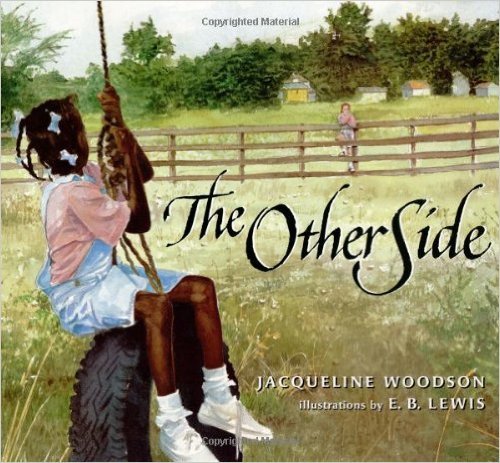
I have long loved The Other Side by Jacqueline Woodson for its straightforward story of two girls living on either side of a fence and yet many miles apart. For some of my students this is territory they have not gone into yet, so the conversations about race, our history, and even what is happening now in our world abound.
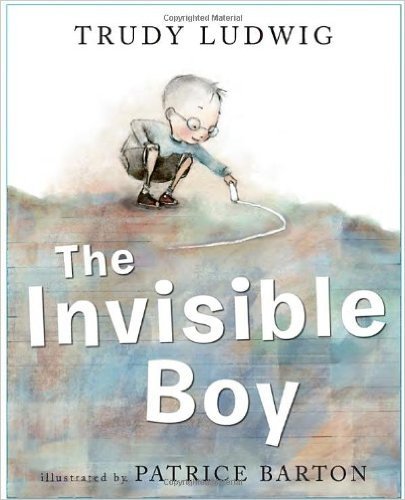
I don’t remember how I came upon The Invisible Boy by Trudy Ludwig. My guess is that someone shared it on their blog, so thank you to them. This story so beautifully encapsulates what it means to feel invisible and every time I have used it with students it has led to deep conversations. We read this more than once so we can pay attention to the illustrations as well.

Students immediately fall in love with Pete & Pickles by Berkeley Breathed for the illustrations but then come back again and again for the story of an unlikely friendship between a pig and an elephant. This is a must read aloud at any age. (ANd truly they all are).

It has been established already that Peter H. Reynolds is a creative genius. I have loved all of his books since the first time I read them. This book, I’m Here, is one that doesn’t get a lot of attention standing next to The Creatrilogy, but it should. It’s eloquent story about a boy who feels so all alone is one that will settle into the hearts of students.
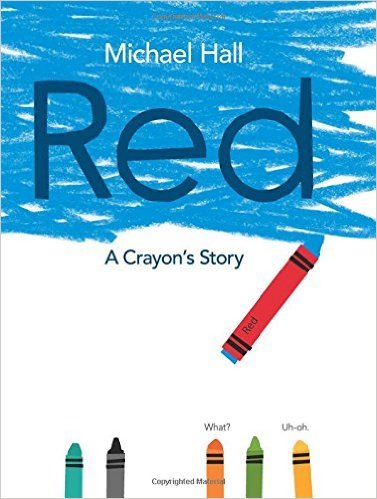
Thea, my kindergartner, came home and told me that I had to get this book about a big red crayon. Okay…. I thought. But she was right, Red – A Crayon’s Story by Michael Hall was one that I had to read aloud to my 7th graders. And then we had to discuss what it meant staying true to one’s own nature as well as facing the pressures of others. I swear this book was written for middle schoolers and not young children secretly.
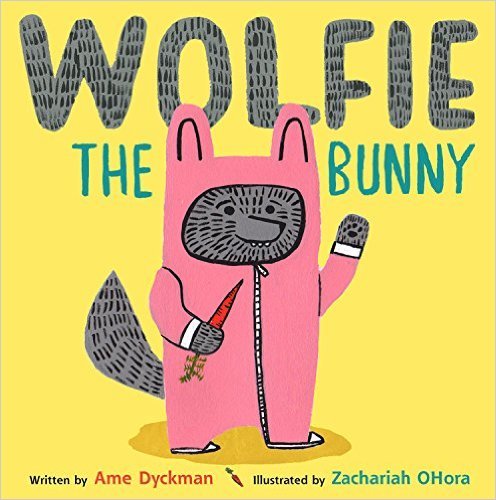
It is a celebration in my life whenever the talented Ame Dyckman comes out with a new picture book and Wolfie the Bunny was definitely a cause for celebration. This book about assumptions and what they can lead to has not only made my students laugh outloud, but more importantly, has led us to question our own assumptions about others.
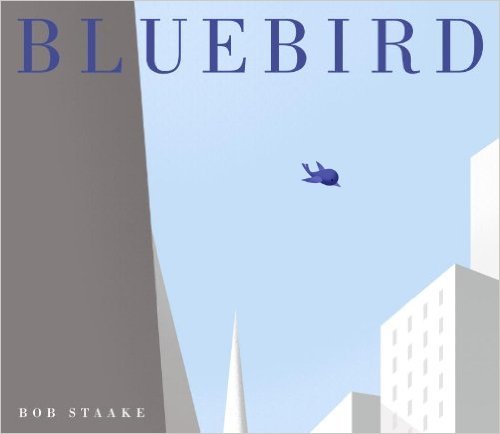
I have Bluebird by Bob Staake on many favorite picture book lists, and there is a reason for that. The shock on my students faces when we get to that page. The questions, the discussion when I step out of the way are priceless. This is a wordless picture book which also means that my students love interpreting the ending.
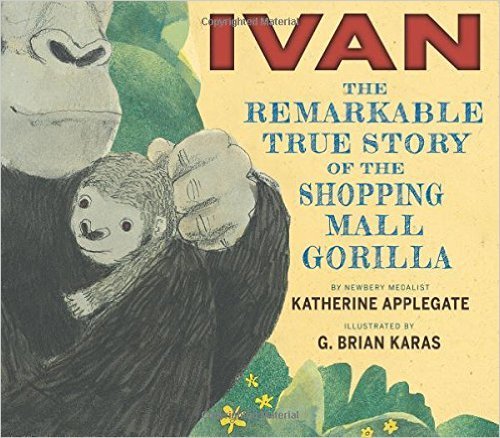
I cried when I read aloud The One and Only Ivan so it only seems fitting that I cried when I read out loud Ivan: The Remarkable True Story of the Shopping Mall Gorilla by Katherine Applegate. My students love to ask questions after this book, they love to talk about their own animals, what they would do to save others.

I read this book out loud to all 5 of my 7th grade classrooms. It was astounding how similar the reaction was; disbelief, outrage, questions and perhaps a tear or two shed by me. This story Malala, A Brave Girl from Pakistan/Iqbal, A Brave Boy from Pakistan by Jeanette Winter is one that will stay with you for a long time. This is sure to elicit conversations and calls for action.
I always seem to cheat on these posts and never stick to just 10, so for my 10th pick I will give you several instead. All of these are worthy of being read aloud and discussed. We need more empathy in this world, I am so glad these authors give us a chance to do just that.
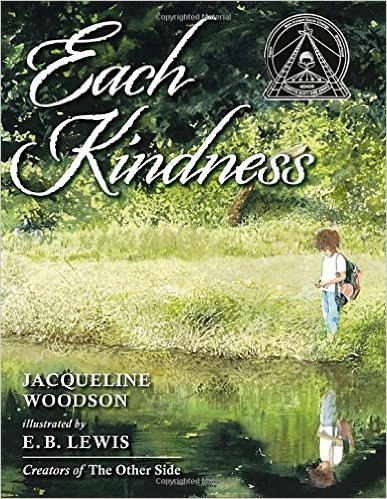
Each Kindness by Jacqueline Woodson
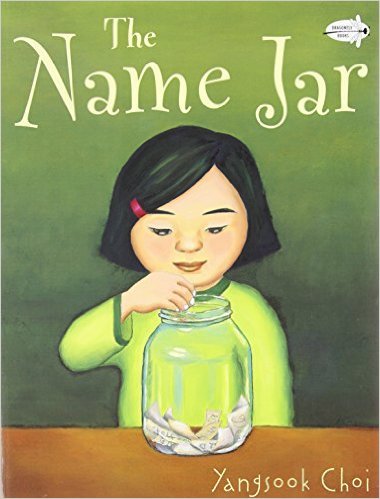
The Name Jar by Yanksook Choi (Having a name that no one pronounces correctly in the USA really makes me love this book even more).
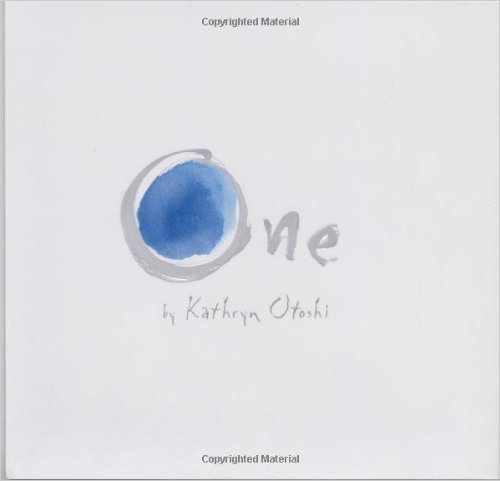
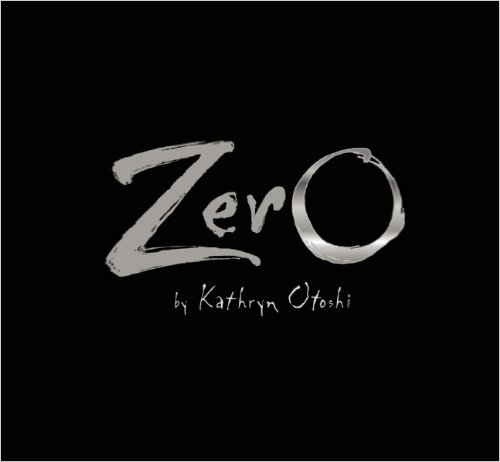
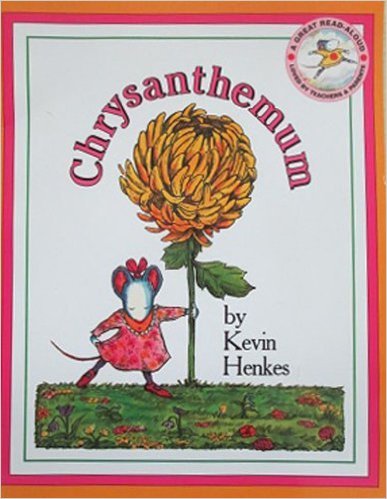
Chrysanthemum by Kevin Henkes.
Which ones would you add to the list?
If you like what you read here, consider reading my book Passionate Learners – How to Engage and Empower Your Students. The 2nd edition and actual book-book (not just e-book!) comes out September 22nd from Routledge.
Filed under: being me, books, Literacy, Reading


August 9, 2015
A Thought on Perspective – The Fish Tank
I sat there watching the fish swim in place, barely noticing Augustine’s excited screams. Amazing that a 19th month old toddler pointing, yelling, and even wanting so badly to hit the glass did not shake the fish. They barely moved. And Augustine stood in total awe, oblivious to the world around her.
The fish seemed content. They had clean water, a few rocks, a few fish friends and obviously enough to eat. And yet, they were clearly too large for their tank. There was nowhere to hide, no trees except for the fake ones painted on the back wall. No places to go except hovering right in the middle staring out at a retirement homes’ front entrance. A completely average life for most goldfish I presume.
What if our classrooms are much like that fish tank?
What if that is how we teach out students?
What if we give them enough to just thrive, to be complacent, to be just fine? What if we provide our students with just the necessities in our curriculum and care? We will surely see them grow. They will not wither away. But will we notice when they become too large for our tanks? When they long for more than the artificial experiences we are providing for them? Will we notice when their dreams outgrow the space that we share, the needs we fulfill? And not only will we notice, but what will we do with that knowledge? What will we do to tear down a wall? Give them the world so that the very tanks we keep them in don’t set them on a path toward creativity suffocation?
Sometimes I think that I am doing a just fine job, and I don’t take the time to step away from our room, from the tank to speak, and look at it from an outsiders perspective. It is hard to do when you are the caretaker of a classroom community because you think that you are doing everything you should be doing. Yet the dreams of our students are sometimes so big that we have to unleash them on the world, because if we don’t the dreams will die. We have to be able to create spaces where our students can continue to thrive, not just survive, not just hovering in the middle of the only space they have.
What of our students don’t know that there is more to the world than what we offer them? Then how can we ever expect them to want to change the world?
Who ever thought a too large goldfish would remind me of that?
If you like what you read here, consider reading my book Passionate Learners – How to Engage and Empower Your Students. The 2nd edition and actual book-book (not just e-book!) comes out September 22nd from Routledge.
Filed under: aha moment, being me, MIEExpert15, Passion, Student dreams


August 8, 2015
We May Not Be Perfect
For years it seems the headlines have been yelling at us in education. The videos have been posted telling us that school is broken, that we have lost creativity, that students hate school and we, the educators, are to blame. For years, we have heard the rallying cry to save education and we have tried. We have pushed ourselves, we have dreamed, we have created, we have failed, and we have gotten back up. Every day we are trying to change education.
So although we may not be perfect. Although we may not be there yet; we are changing the narrative of education that surrounds us. We are changing the way students feel about school. We are changing the way education is viewed. We may not be perfect, but we are trying.
So before we focus on all of the negative, because we are all good at that, focus on all of the positive things that surround us. Focus on the people that come to work every single day and give it their best. Focus on the students who tell you their truth so we can make a change. Focus on all of the people who are making a difference. Scream those stories from the rooftops. Share those stories on Facebook. When people tell you that school is broken, speak up! Because we are not all broken. Not all students hate school. Not all schools kill creativity Some do, we are not perfect, but at least most of are trying to make a change. So celebrate that.
If you like what you read here, consider reading my book Passionate Learners – How to Engage and Empower Your Students. The 2nd edition and actual book-book (not just e-book!) comes out September 22nd from Routledge.
Filed under: Be the change, being me, choices


My 10 Favorite Nonfiction Picture Books Right Now
I don’t remember reading much nonfiction as a child, perhaps I was too caught up in being a kid to notice. I read biographies for a long time, but nonfiction picture books were not on my playlist. Not so anymore. The nonfiction picture books that are available to our students now are amazing and every year a few more settle into our library and hearts. Here are the top ten favorites in our classroom library.
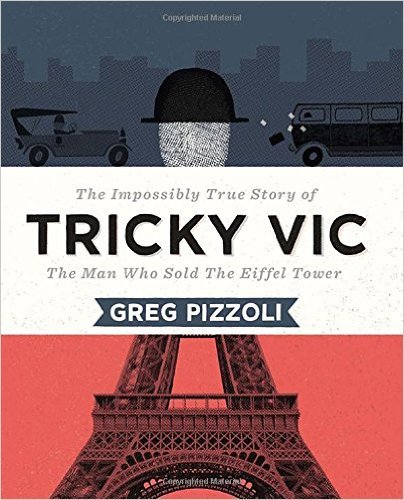
When Donalyn Miller recommends a picture book, I pay attention. Tricky Vic – the Man Who Sold the Eiffel Tower by Greg Pizzoli is a masterpiece. A page-turning read that makes you shake your head in wonder. This is a picture book for all ages.

Kelly Milner Halls can do no wrong in my eyes and her book In Search of Sasquatch is a favorite read in our classroom library. The reporting style of the book, the pictures, and the flow of the text makes this a book that students come back to again and again. Check out all of her other nonfiction texts too, you will be glad you did.
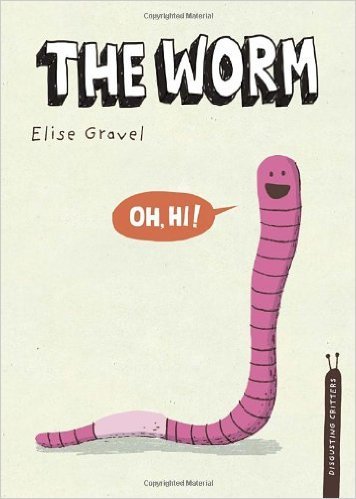
Loved by many, any of Elise Gravel’s Disgusting Creatures series such as The Worm is sure to suck readers in. With its whimsical illustrations surrounded by the facts about these animals, readers don’t even know how much they are learning as they devour the pages.

I don’t think it is possible to have a top 10 nonfiction picture book list without Ivan: The Remarkable True Story of the Shopping Mall Gorilla by Katherine Applegate. This beautiful book and story makes me cry every time I read it, but it is worth every sniveled tears. This is also one of the most lost picture books in my classroom, I hope it finds much love in its new homes.

Anything by Seymour Simon deserves to be on this list, but Gorillas is one of our favorites. With its stunning photography and accessible text, it provides my students with enough information to make them feel knowledgeable, as well as the desire to keep reading more. Seymour Simon is a legend within the nonfiction universe, rightfully so.
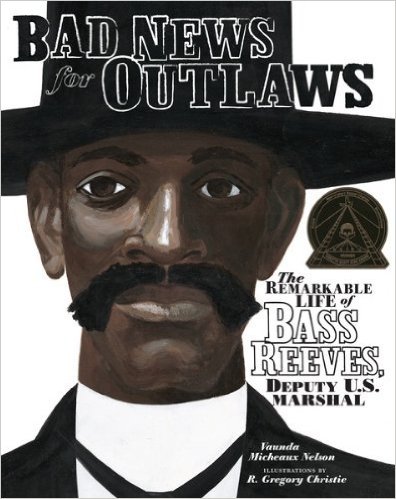
I have mentioned Bad News for Outlaws: The Remarkable Life of Bass Reeves, Deputy U.S. Marshall by Micheaux Nelson on many picture book lists and there is definitely a reason for that. This book provides students with a different historical narrative about the 1800’s than most. Students cannot believe the story is true and it is often discussed for a long time after.
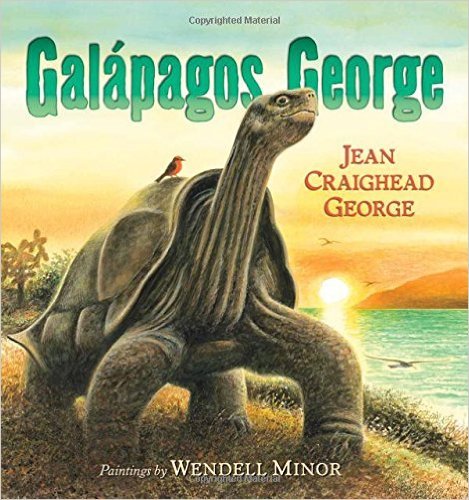
I remember reading the newspaper articles about George, and yet when Galapagos George by Jean Craighead George showed up at my house I still read it aloud to Thea not putting two and two together. George does not have a happy ending, which I knew, but had forgotten about. The shocked look on Thea’s face as I got to the end told me I should have probably prepped her, however, the tale itself is hauntingly beautiful and completely worth the shock.
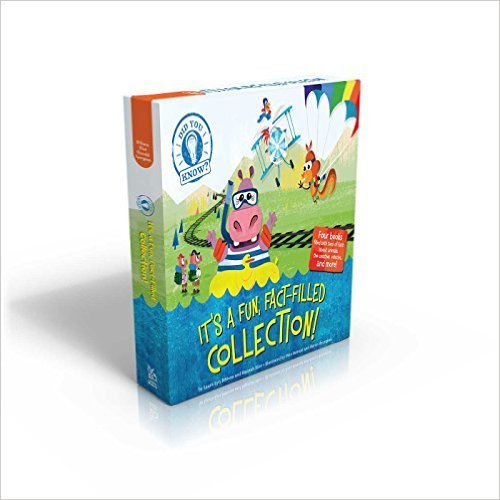
Every time I receive one of these Did You Know books by Laura Lyn DiSiena and Hannah Eliot I cannot wait to read them aloud to my own kids and then get them into the classrooms. these whimsical fact-bursting books are for kids of all ages and is sure to leave even the most knowledgeable reader in awe.
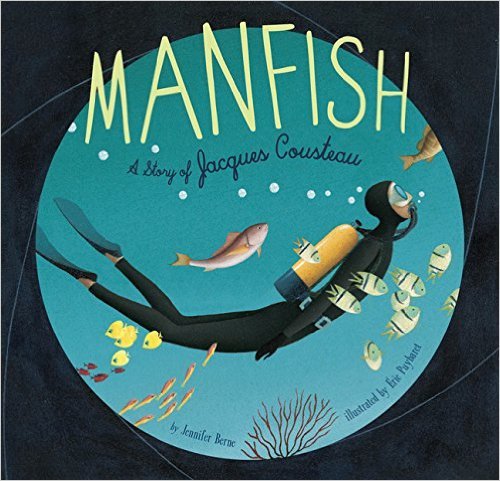
Manfish by Jennifer Berne tells the childhood story of Jacques Costeau. I love filling my students in on this ocean explorer, and the illustrations are gorgeous. A simple tale told about one of the great explorers of our time.
And for spot number 10, I can’t pick, so here are a few more of my favorite reads.

On A Beam of Light by Jennifer Berne.
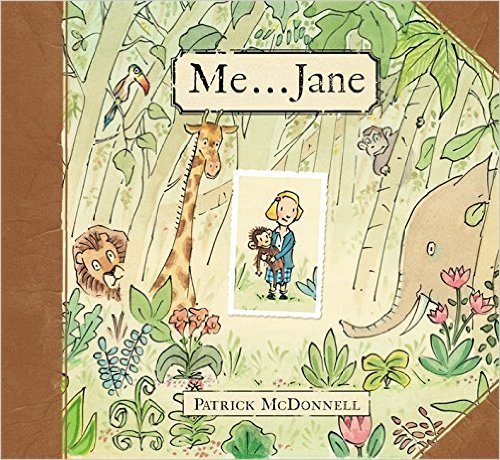
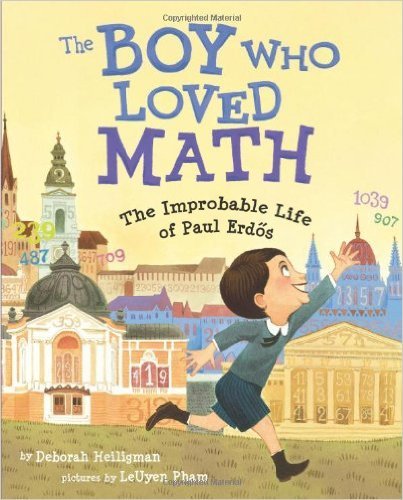
The Boy Who Loved Math by Deborah Helligman
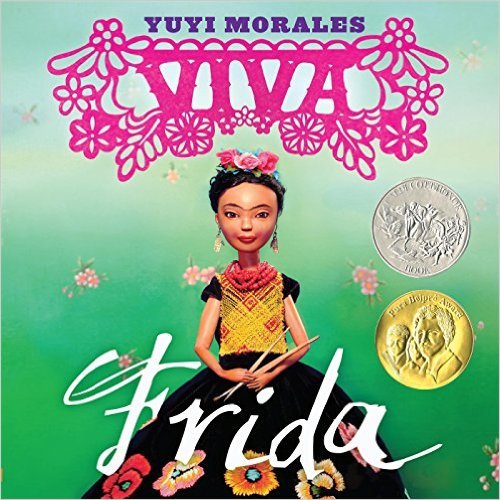

The Right Word: Roget and His Thesaurus by Jen Bryant.
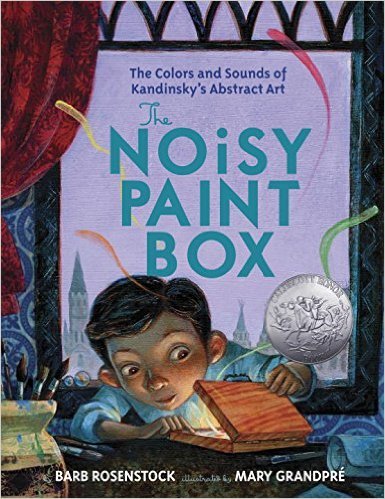
The Noisy Paint Box by Barb Rosenstock
And finally, I just added these to my wish list
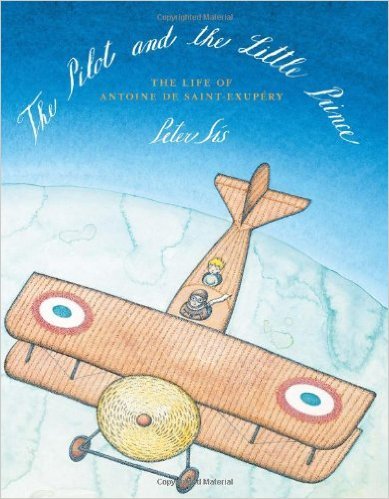
The Pilot and the Little Prince by Peter Sis.
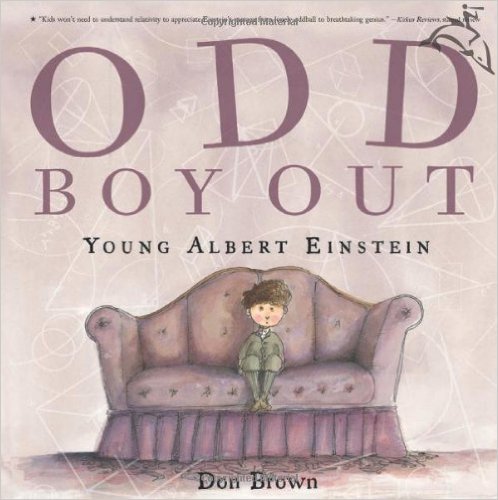
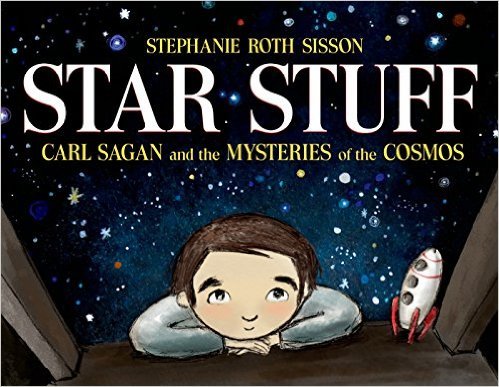
Star Stuff: Carl Sagan and the Mysteries of the Cosmos by Stephanie Roth Sisson
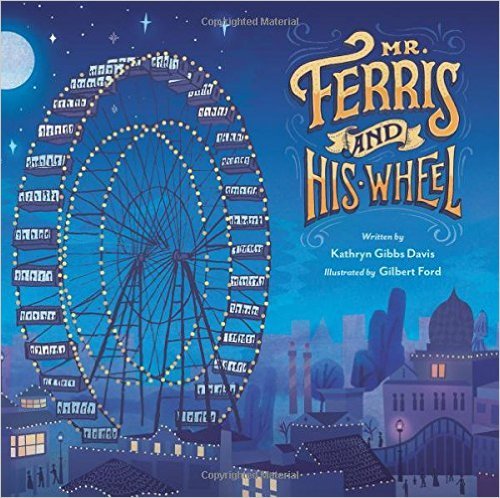
Mr. Ferris and His Wheel by Kathryn Gibbs David
If you like what you read here, consider reading my book Passionate Learners – How to Engage and Empower Your Students. The 2nd edition and actual book-book (not just e-book!) comes out September 22nd from Routledge.
Filed under: being me, books, Literacy, Reading, students


August 6, 2015
6 Things New Teachers Remind Me to Do Every Year
You can usually spot a new teacher a mile away. There is just something about the way they talk about the upcoming year, how they hold themselves, and even the very air that surrounds them. So much joy, so much enthusiasm, mixed with a certain air of fear. Right now seems to be the time where people start talking about all the mistakes new teachers make their first year and pass on advice to them whether they need it or not. Yet, every year I learn so much from the new teachers I meet. Every year they teach lessons to me.
Be enthusiastic. The joy that comes with teaching your very first year is one we should chase after every year. We should love teaching, not take it for granted, not get caught up in the misery of all of the outside things that make teaching difficult. Let’s all be excited that we have a job and that we will get to do what we love so much for another year.
Ask questions. New teachers know that they don’t have all of the answers so they ask a lot of questions. As a veteran teacher, I sometimes think that I should know all of the answer so I feel stupid asking many questions. Yet teaching is about learning and we stop learning when we stop asking questions. Ask away and don’t be embarresed if you don’t know something, embrace that you are learning.
Know their students names. My first year of teaching I spent hours memorizing names with faces so that on the first day of school I knew all of my students by name. This small gesture of respect went a long way in building classroom community. As a middle school teacher, I have a lot more names to memorize – I think I am up to 136 students this year – and yet I have started looking at their pictures already. I want to know all of their names by the end of the first week, no later.
Say”Why not?” a lot. First year teachers tend to question many things we see as established norms, and sometimes I think veteran teachers, myself included, can get a little bit offended when something we hold near and dear is questioned. Yet it is in this questioning that we start to discuss new ideas, we find inspiration, and we change the way we teach. we should all be asking “Why not?” a lot more than we are.
Stay true to our noble intentions. I became a teacher to help students become better people, yet within my first few years, I lost sight of that. New teachers joining our profession may seem idealistic or delusional to some, yet within their dreams is something we should all be chasing; the belief that what we do matters. The belief that we can make a difference. That we can create schools that students actually want to be a part of.
Make connections. As a new teacher you don’t know that many people so all year you are trying to find your tribe. yet, often, we settle into our patterns of who we speak to and shut ourselves off from the rest of our community when instead we should be continuing to make connections as often as possible. why can’t you know all of the people in your school? Why not reach out across your district? While it is nice to have people that know you well, make sure you make connections with new people as well. You never know who will become a part of your tribe.
If you are a new teacher reading this, welcome, this is truly the best job in the world. May you love it this much or more each year you teach. And if you are a veteran like me; I hope your year is filled with wonder, with laughs, and with joy. We are lucky to be teachers, even if the world sometimes seems to be against us.
If you like what you read here, consider reading my book Passionate Learners – How to Engage and Empower Your Students. The 2nd edition and actual book-book (not just e-book!) comes out September 22nd from Routledge.
Filed under: advice, aha moment, being a teacher, new teacher, new year



